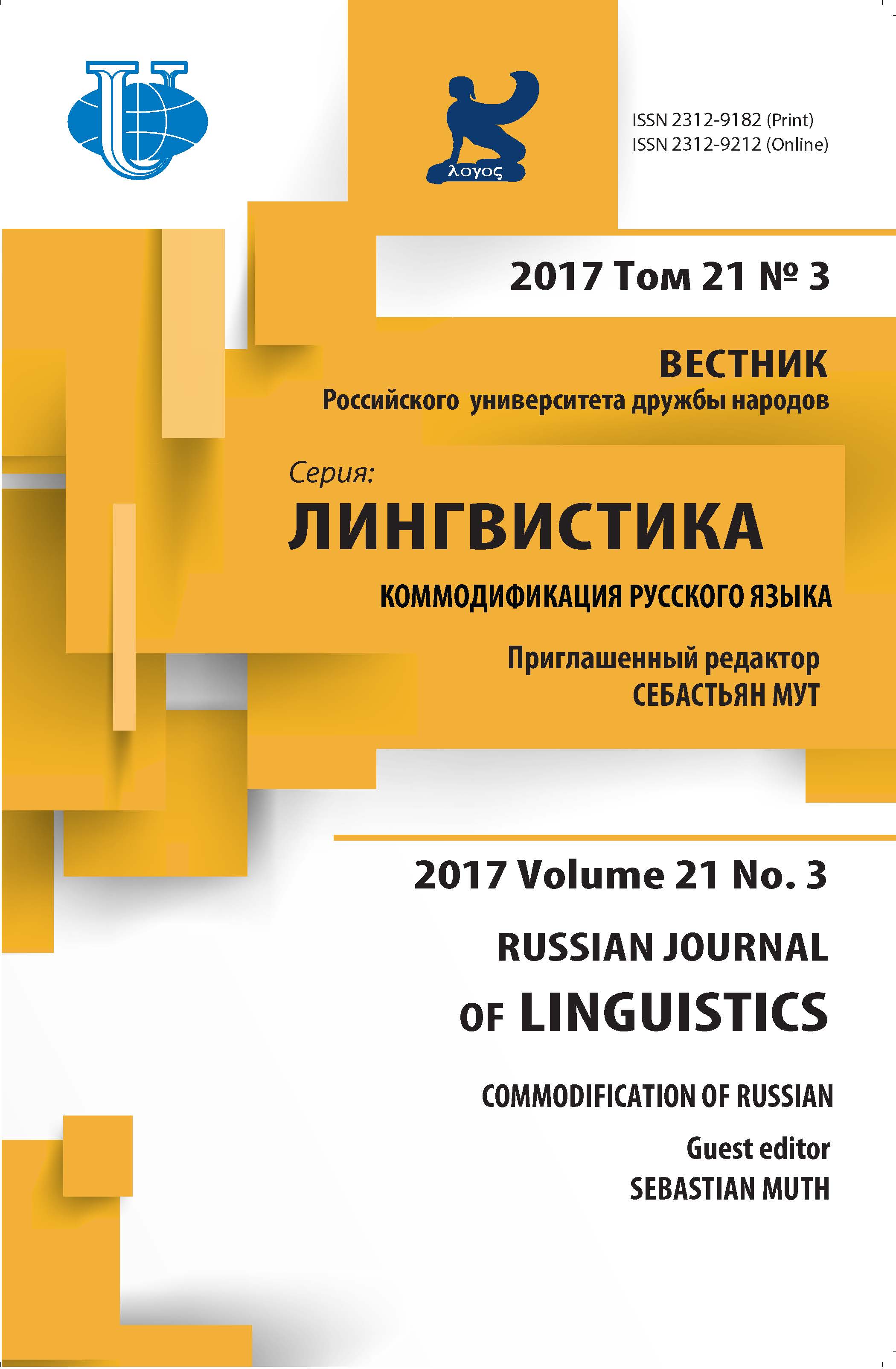IS RUSSIAN DECOMMODIFYING IN CATALONIA?
- 作者: Cabal-Guarro M.1
-
隶属关系:
- Research Centre for Sociolinguistics and Communication (CUSC) University of Barcelona
- 期: 卷 21, 编号 3 (2017): Commodification of russian
- 页面: 605-619
- 栏目: Articles
- URL: https://journals.rudn.ru/linguistics/article/view/16793
- DOI: https://doi.org/10.22363/2312-9182-2017-21-3-605-619
如何引用文章
全文:
详细
作者简介
Miquel Cabal-Guarro
Research Centre for Sociolinguistics and Communication (CUSC) University of Barcelona
Email: miquelcabal@ub.edu
Miquel Cabal-Guarro, PhD in Linguistics at the University of Barcelona, Catalonia. He works as a literary translator and researcher in Sociolinguistics. Amongst his translations into Catalan, there are novels and plays of renowned authors as Dostoyevski, Tolstoy, Tsvetaeva, Dovlatov, Platonov or Chekhov. He is currently collaborating with the Research Centre for Sociolinguistics and Communication (CUSC) and the Group for the Study of Endangered Languages (GELA) at the University of Barcelona. Research interests: Sociolinguistics of the post-Soviet space, especially in Crimea and Ukraine, as well as the role of Russian in the post-Soviet countries. 585 Gran Via de les Corts Catalanes, 08007 Barcelona, Spain
参考
- Agència catalana de turisme (2015) Dossier de premsa 2014. Barcelona.
- Appadurai, A. (1986) Introduction: commodities and the politics of value. In A. Appadurai (ed.) The social life of things. Oxford: Oxford University Press, 3-63.
- Bourdieu, P. (1986) The Forms of Capital. In J. G. Richardson (ed.) Handbook of Theory of Research for the Sociology of Education. New York: Greenwood Press, 241-258.
- Cushman and Wakefield (2016) Main Streets across the world. London. Available at: http://www.cushmanwakefield.com [Retrieved: 11.01.2017].
- Heller, M. (2010) The Commodification of Language. Annual Review of Anthropology, 39 (1), 101-114.
- Heller, M. and Duchêne, A. (2012) Pride and Profit. Changing Discourses of Language, Capital and Nation-State. In M. Heller and A. Duchêne (eds.) Language in Late Capitalism: Pride and Profit. London: Routledge, 1-21.
- Heller, M., Pujolar, J. and Duchêne, A. (2014) Linguistic commodification in tourism. Journal of Sociolinguistics, 18 (4), 539-566.
- IDESCAT, 2015. Enquesta d’usos lingüístics de la població 2013. Barcelona. English version of the main facts available at: http://llengua.gencat.cat/web/content/documents/publicacions/altres/ arxius/EULP2013_angles.pdf [Retrieved: 18.12.2016].
- Irvine, J. T. (1989). When Talk Isn’t Cheap: Language and Political Economy. American Ethnologist, 16(2), 248-267.
- Pavlenko, A. and Mullen, A. (2015) Why diachronicity matters in the study of linguistic landscapes. Linguistic Landscapes, 1, 1-2, 108-126.
- Pavlenko, A. (2017) Russian-friendly: how Russian became a commodity in Europe and beyond. International Journal of Bilingual Education and Bilingualism, 50 (April), 1-19.
- Shohamy, E and D. Gorter (eds.) 2008, Linguistic Landscape: Expanding the Scenery. London and New York: Routledge.
- UNWTO (United Nations World Travel Organization), 2004. Annual Report 2015. Madrid. Available at: http://cf.cdn.unwto.org/sites/all/files/pdf/annual_report_2015_lr.pdf [Retrieved: 23.03.2017].
- WEF (World Economic Forum), 2015. The Travel & Tourism Competitiveness Report 2015. Geneva. Available at: http://www3.weforum.org/docs/TT15/WEF_Global_Travel&Tourism_Report_ 2015.pdf [Retrieved: 23.03.2017].














